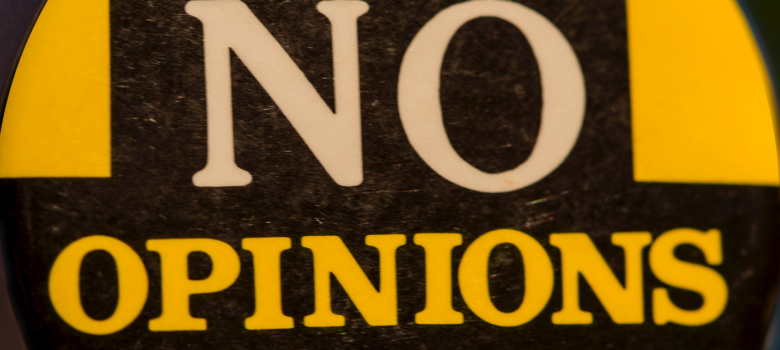The Canadian Broadcast Standards Council has ruled that a news broadcast that jokingly criticized Canadian content violates the Canadian Association of Broadcasters’ (CAB) Code of Ethics and the Radio Television Digital News Association of Canada’s (RTDNA) Code of Journalistic Ethics. The complaint arose from a December 2019 broadcast on Toronto radio station CFRB. David McKee used his lead-in to a report on a possible Netflix tax to state “the libraries of streaming services like Netflix, Disney+ could soon have more of a Canadian flavour that nobody watches or wants if the federal government gets its way.”
That comment was too much for one listener, who filed a complaint with the CBSC, arguing that “Canadian Content is important, and Mr McKee seems to forget that he is part of a Canadian Content Broadcaster. His opinions should be kept off of the regular news sections and limited to a specific commentary section if he is so transfixed on being a commentator.”
The CBSC agreed, taking aim at the words “nobody watches or wants”, which it concluded constituted inserting personal opinion into the broadcast:
Accordingly, the Panel has concluded, with one Adjudicator abstaining, that when David McKee expresses his view that Canadian content is something that “nobody watches or wants” he is communicating an editorial opinion which, under the relevant codes, should be kept entirely distinct from regular broadcasts of news or analysis. The abstaining Adjudicator, T. Rajan, considers that the news segment contained a combination of facts, interpretation and commentary, which are all frequently used in news reporting. Although such a combination is not allowed under Article 2.0 of the RTDNA Code of Journalistic Ethics, she believes that Clause 5(3) of the CAB Code of Ethics appears to allow such a combination up to a certain point. Accordingly, since, based on CBSC precedents, some commentary is permitted under narrow circumstances outlined the CAB Code of Ethics, she decided to abstain on the first question posed to the Panel.
The role of news coverage serves an important public interest purpose. It is essential in a democratic system and it is for this reason that a traditional newscast needs to be objective and factual and does not lend itself to the inclusion of opinion or commentary.
As a penalty, CFRB must now broadcast that it breached the ethics standards on several broadcasts. While few will likely take notice, Canadians should take notice of the regulatory policing of the line between news and commentary on a radio broadcast. Indeed, one wonders if there would be a similar outcome if the broadcaster had expressed support for Canadian content.
Moreover, the Broadcast and Telecommunications Legislative Review Panel, which Canadian Heritage Minister Steven Guilbeault plans to implement, recommended extending Canada’s broadcast regulatory framework to the Internet, including sites and services that aggregate the news. The panel referenced the broadcast standards panel, stating that it is part of a system used to suppress misinformation and manipulation. It continued with a recommendation that the “federal government introduce legislation with respect to liability of digital providers for harmful content and conduct using digital technologies, separate and apart from any responsibilities that may be imposed by communications legislation.” The fear then – and now – is that the recommendations would invariably lead to increased speech regulation online in keeping with its questionable conclusion that it is all part of the “Canadian broadcast system.”








So. Is this reporting or opinion? One wonders…
His big mistake was telling the truth. Legislated content is crappy content.
McKee’s comment didn’t just break the rules. It was factually wrong given modern Canadian viewing and listening audiences. There is an audience for made-in-Canada stuff. So…maybe we need to allow for personal opinion, but he ought to be called out for either being wrong or lying, whichever situation is actually in effect.
So the CBC, a taxpayer-funded institution, can inject their opinion into any “news” they please, telling us what we’re supposed to think and feel, especially when it comes to subjects like Donald Trump or COVID-19.
But this guy can’t say that Canadian content sucks. Okay, then.
Pingback: ● NEWS ● #michaelgeist #canada ☞ No Opinions Permitted: Broadcast P… | Dr. Roy Schestowitz (罗伊)
Pingback: June 4-5 – The Friendly News Brief
Pingback: Media Beat: June 08, 2020 | Iranian Diaspora
A creation of the Canadian Association of Broadcasters, the Canadian Broadcast Standards Council is an organization that provides for the “self-regulation” of private sector broadcasters in matters related to programming content. Its decisions are “non-binding” on its members and cannot be compared to regulation by a government agency such as the CRTC. Readers should take notice of Michael Geist’s inability to make a distinction between the two.
Pingback: News of the Week; June 10, 2020 – Communications Law at Allard Hall
The CBSC is toothless. There are never any penalties, apparently.